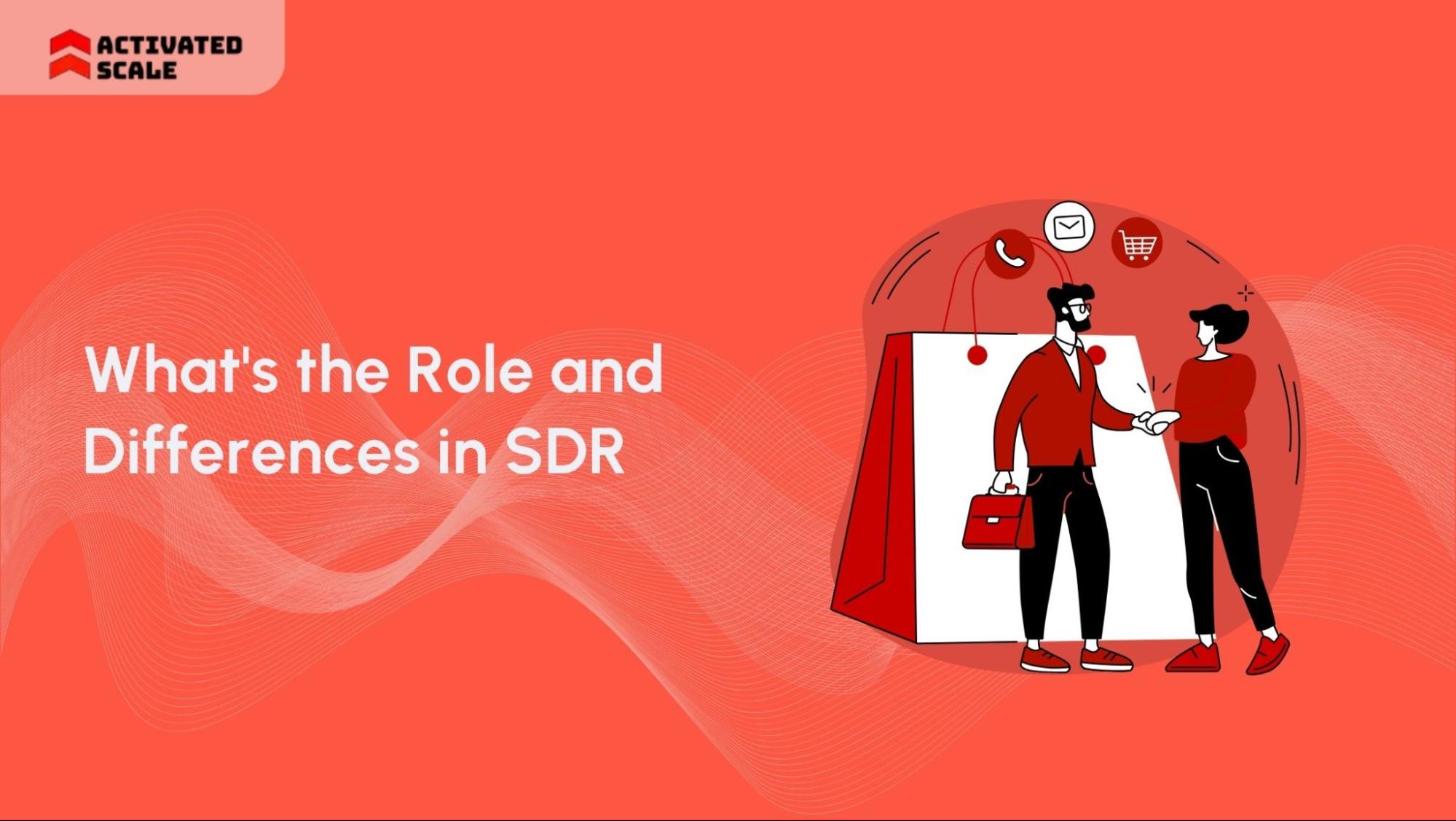Sales teams lose nearly 20% of their time on unproductive prospecting, and 50% of reps miss their quotas every year.
For ticket sales professionals, these challenges hit even harder. With tight timelines and highly emotional buying decisions, every missed opportunity directly affects revenue.
If you manage or are part of a ticket sales team, you know how crucial it is to train for specific skills. For ticket sales teams, generic sales training isn't sufficient.
The unique challenges of selling tickets, such as understanding customer psychology, managing high-pressure situations, and utilizing specialized tools, require a tailored approach. Without the right training, even the most promising leads can slip through the cracks.
In this blog, we’ll explore the essential training needs that empower ticket sales professionals to boost performance and close more deals.
Ticket Sales vs. General Sales: A Comparative Overview
Ticket sales differ significantly from general sales due to factors like time sensitivity, emotional buyer behavior, and event-specific dynamics.
Recognizing these differences is essential to developing effective training and sales strategies tailored for this fast-paced environment.
Common Obstacles Sales Teams Face in Ticket Sales
- Managing Urgency Without Pressuring Customers
The fixed date of events means sales reps must act fast, but too much pressure can deter buyers. Balancing urgency with a positive customer experience is challenging.
- Handling Emotional and Impulsive Buying
Buyers may make decisions based on excitement rather than logic, leading to hesitation or second-guessing. Sales teams need to reassure and guide buyers effectively.
- Communicating Complex Pricing and Seating Options
Explaining multiple ticket tiers and seat categories clearly is vital. Confusion can cause lost sales or dissatisfaction.
- Dealing with High Competition
The ticket market is crowded with many sellers, including official vendors and secondary markets. Standing out requires distinct value propositions and trust-building.
- Adapting to Seasonal and Event-Specific Demand
Sales can fluctuate widely depending on the event or time of year, making forecasting and staffing difficult.
- Using Technology Effectively
Many teams struggle to use CRM systems or sales tools optimally, missing out on lead tracking and follow-up opportunities.
- Rapidly Handling Objections and Closing Deals
Sales reps must think on their feet and respond to objections quickly to prevent losing potential buyers.
Essential Training Areas for High-Performing Ticket Sales Teams

Successful ticket sales depend on more than just enthusiasm — they require a focused skill set tailored to the unique demands of the industry.
Training programs that address core competencies can dramatically improve sales outcomes and customer satisfaction.
1. In-Depth Product and Event Knowledge
Sales reps need more than surface-level details. They must internalize:
- The nuances of ticket categories (VIP, early bird, bundles)
- Event logistics: date, venue, artist/speaker draw, and audience demographics
- Selling points that align with different buyer personas
According to reports, 93% of buyers are more likely to make a purchase when salespeople demonstrate strong product knowledge.
This is especially critical in ticket sales, where customers rely heavily on accurate information to make quick decisions.
2. Mastering Customer Psychology
Buying tickets is often emotional. Whether it’s for a concert, sports game, or conference, people purchase based on desire, anticipation, or FOMO. Training should cover:
- Recognizing emotional buying signals
- Adapting tone and language to match the customer’s mood
- Using urgency and scarcity ethically to drive decisions
Training should include recognizing these emotional triggers and utilizing them ethically to guide prospects effectively. Harvard Business Review highlights that emotionally connected customers are more than twice as valuable as highly satisfied ones, making emotional intelligence a key skill.
3. Effective Communication and Objection Handling
Research by Salesforce shows that 87% of customers say it’s important for sales reps to understand their needs, emphasizing personalized communication.
Objections in ticket sales are immediate and varied:
- "It’s too expensive"
- "I’m not sure if I’ll be available"
- "Can I get better seats elsewhere?"
Effective training involves scripting flexible responses, role-playing, and helping reps respond in real time.
Training must focus on active listening, validating concerns, and reframing objections into benefits.
4. Proficiency with Sales Technology and CRM Systems
According to reports, sales teams using CRM systems increase sales by up to 29%. Training ensures reps can efficiently use these platforms to prioritize leads and streamline their workflow.
Unlike B2B sales, ticket sales often close within minutes. Reps need to:
- Build rapport instantly
- Listen more than they talk
- Deliver value-driven messaging quickly
This is where practical exercises, like live call reviews and real-time feedback, have a major impact.
5. Time Management and Prioritization Skills
With limited windows to sell tickets before events sell out or dates pass, reps need to manage their time strategically.
This includes prioritizing high-potential leads and balancing outreach with follow-up. Effective training includes methods to avoid common time-wasters and focus on high-impact activities.
Addressing Ticket Sales Training Needs with Practical Strategies
Identifying training needs is only half the equation. The next step is building an environment where skills are consistently developed and aligned with sales outcomes. Here’s how:
1. Use Real Conversations to Teach Real Tactics
Theory doesn’t close deals, but real examples do. Share live call recordings and let new reps shadow experienced ones.
Let them hear what effective conversations actually sound like: how urgency is framed, objections are handled, and buyer hesitations are turned into closed deals.
2. Create Role-Play and Scenario-Based Drills
Build weekly simulations around typical ticket sales interactions:
- A last-minute buyer deciding between two sections
- A price-conscious group organizer asking for discounts
- A customer stalling with “Let me think about it”
Running these drills helps reps stay sharp, adapt to buyer behavior, and refine their messaging in a safe but realistic setting.
3. Schedule Micro-Training Sessions Weekly
Keep training light, consistent, and focused. A short, weekly session covering one skill, like handling price objections or reframing urgency, builds stronger habits over time. Think of it as reps working on one sales muscle each week.
4. Feedback Loops and Tactical Coaching
Set up short, recurring coaching sessions anchored in actual sales data — call recordings, dashboards, and deal reviews. Focus on specific decision points, like where the buyer started hesitating or where the close stalled. This kind of feedback isn’t about motivation, it’s about calibration.
5. Reinforce Learning Through Peer Coaching
Reps often learn fastest from each other. Set up buddy systems or peer reviews where top performers share scripts, rebuttals, and tactics that are working in the current sales cycle. With light structure from leadership, these sessions become a powerful way to scale what's already effective.
6. Personalize Coaching Based on Rep Performance
One-size-fits-all training wastes time. A rep who’s great at opening calls but loses steam at closing needs different coaching than someone who avoids CRM tools or struggles with follow-up timing. Utilize CRM data and call metrics to tailor coaching to actual performance gaps.
7. Integrate Training into Onboarding and Beyond
Training shouldn't stop after week one. Create a structured onboarding track that introduces essential ticket sales skills, but also layer in ongoing refreshers, especially before high-demand periods or new product launches. This ensures reps stay aligned as the market or offer changes.
8. Align Training with Incentives
Tie training to things reps care about. Award points or bonuses for completing a module, leading a drill, or improving specific KPIs.
When training is seen as a contributor to personal performance and recognition, not just another box to tick, engagement improves significantly.
Also Read: Inside Sales Representative Job Description and Duties
Measuring the Impact of Ticket Sales Training
To validate and improve training efforts, you need to measure what matters. Focus on:
1. Conversion Rates: Are trained reps converting leads at a higher rate than before?
2. Sales Velocity: Are deals closing faster after specific training modules?
3. Customer Satisfaction or NPS: Is the post-sale experience improving along with training?
4. Rep Confidence and Retention: Track qualitative feedback. Confident reps tend to stay longer and perform better.
Also Read: 5 Strategies to Attract, Hire, and Retain Top Sales Talent
Conclusion
The pressure to meet ticket sales targets is constant, and relying on generic sales training won’t help you hit the mark.
High-performing sales teams are built by identifying specific training needs that address urgency, emotional buyer behavior, and competitive markets.
Skills like deep product knowledge and quick objection handling are teachable, measurable, and crucial for success.
Your training must reflect the realities of ticket selling: urgency, complexity, and emotional decision-making. It’s not just important; it’s essential for sustainable growth.
Hiring and training top-tier sales professionals takes time, effort, and insight.
Activated Scale can help you connect with experienced U.S.-based sales experts, from SDRs and AEs to fractional sales leaders, through flexible models like contract-to-hire and fractional selling.
You get the expertise you need now, with the option to scale or convert later, without long-term risk.
Here’s how Activated Scale can help:
- Fractional Sales Development Representatives (SDRs): Part-time pros to generate leads and set up meetings.
- Fractional Account Executives (AEs): Full-cycle sales experts who close deals and manage the process.
- Contract-to-Hire Sales Recruiting: Evaluate candidates on a trial basis before committing full-time.
- Fractional Sales Leadership: Bring in experienced leaders to shape and execute your sales strategy.
Start building a sales team that’s trained to succeed.
Let Activated Scale help you fill the gaps strategically, flexibly, and with confidence.
The Ultimate Guide to Hiring a Salesperson!
Get the step-by-step guide to hiring, onboarding, and ensuring success!
_edi.png)




